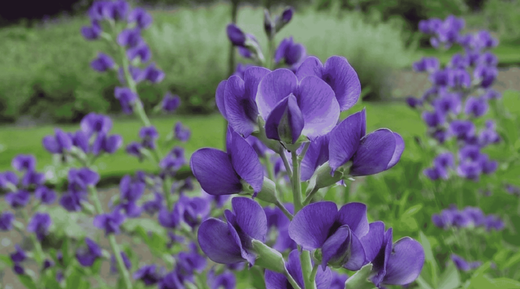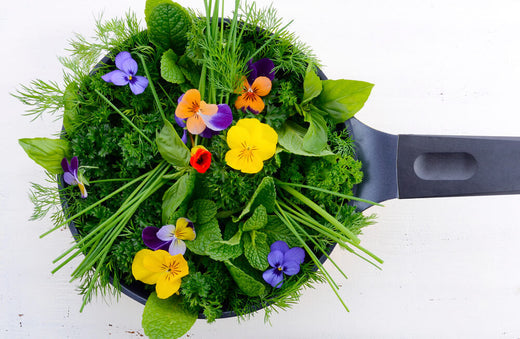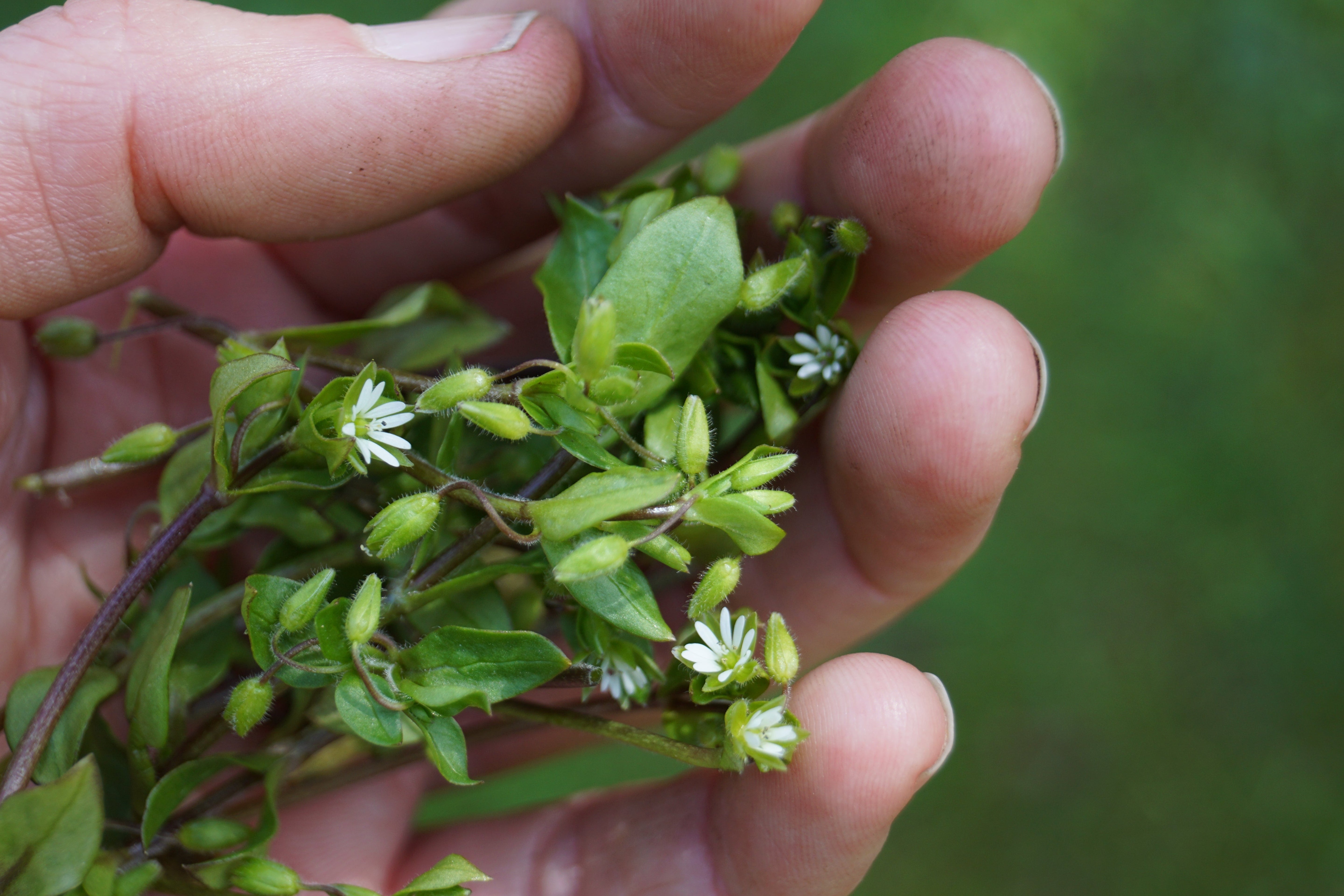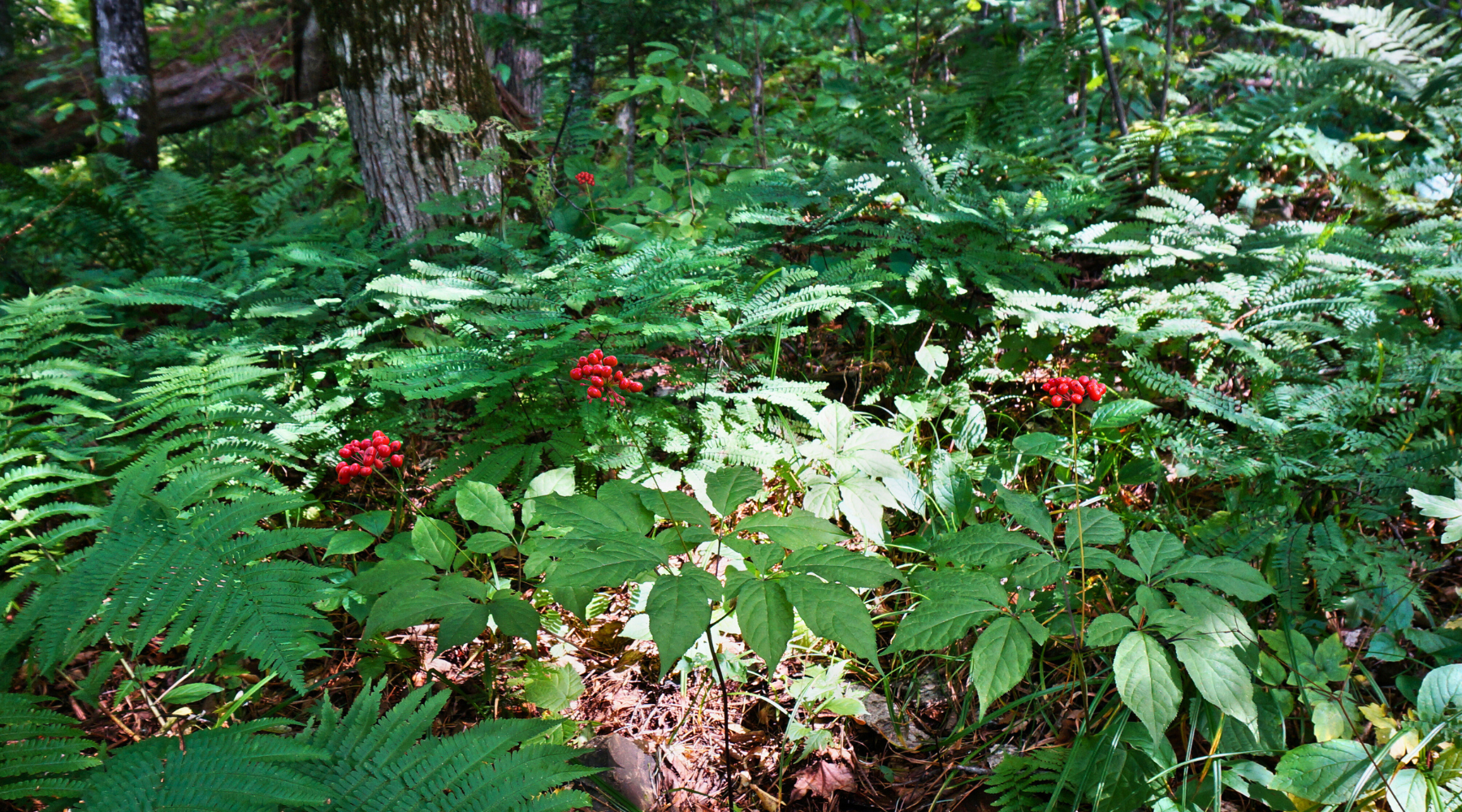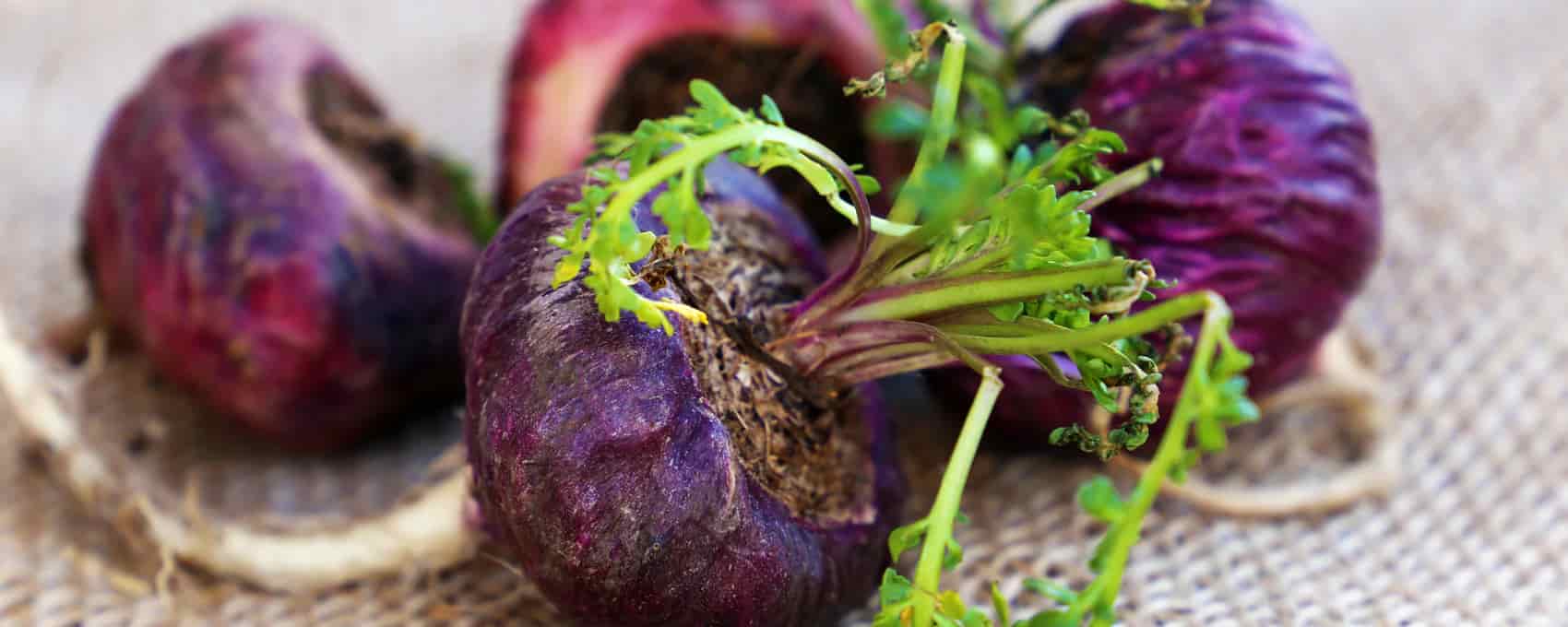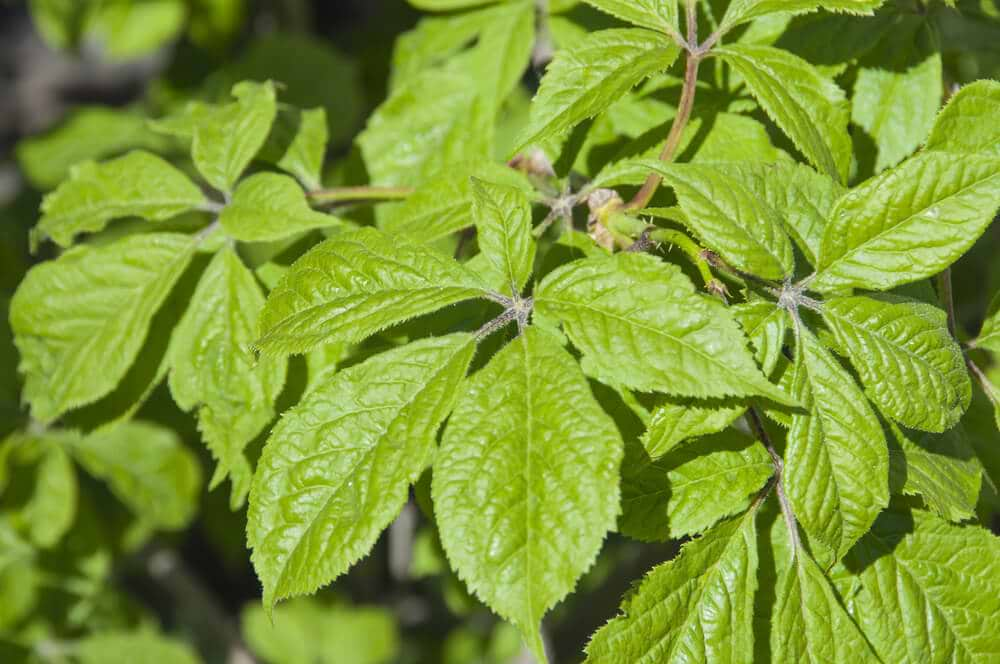
Eleuthero Health Benefits: How This Adaptogen Supports Stress, Energy & Focus
Written by Rebecca Younger, CH, CDShare
Ever feel drained before the day’s even halfway done? Stress creeping in just as you're trying to breathe out? Eleuthero (Eleutherococcus senticosus) steps in when energy dips and focus wavers, no caffeine required!
Used to promote stamina, resilience, and focus, this tough little root is a classic adaptogen helping your body adapt to stress without the crash-and-burn of caffeine or sugar. Whether you need support during high stress chapters of life, or just want to get through your days with a little more clarity and calm, eleuthero supports balanced energy, sharper thinking, and immune strength to keep you balanced and resilient.
What Is Eleuthero?
Commonly called Siberian ginseng, eleuthero (Eleutherococcus senticosus) is not actually a true ginseng like Asian ginseng (Panax ginseng) or American ginseng (Panax quinquefolius). They're botanical cousins in the Araliaceae family, alongside ivy, but with different chemical properties and uses.
Eleuthero appears as a spiny, woody shrub that can grow up to 10 feet tall, with palmate leaves and small, round, purple-black berries that add a subtle splash of color to its rugged appearance. Native to Northeastern Asia (think Russia, China, and Korea) it thrives in cool, mountainous regions where it endures harsh winters and rocky soils.
The most valuable part is the root, that's where the adaptogenic magic lives. The root is rich in bioactive compounds that support your body's resilience. This isn't your garden-variety herb. Eleuthero is hardy, resilient, and totally unfazed by harsh conditions, kind of like what it helps your body become.
To learn more about adaptogens and how they can help you manage stress, check out our article on herbal supplements for adrenal fatigue.
Historical and Cultural Significance of the Root
Long before it made its way into modern health food stores and tincture bottles, eleuthero had serious street cred across continents and centuries.
In Traditional Chinese Medicine (TCM), known as Ci Wu Jia, eleuthero was highly valued for fortifying "Qi" - that vital life energy - and was traditionally used to promote longevity, vitality, and overall wellness. It was considered a key herb for helping the body resist fatigue and maintain balance.
Also nicknamed Russian ginseng, eleuthero became a Soviet power move in the 20th century. Scientists recognized eleuthero's potential and made it their go-to herbal ally for enhancing endurance, easing stress, and boosting physical performance. It was used extensively by soldiers, athletes, and even cosmonauts. Scientific research conducted by Soviet scientists validated its effectiveness in improving energy, immunity, and its adaptogenic properties.
In Russian and Korean folk medicine, eleuthero was brewed as a warming tea or infused in vodka to help people endure brutal winters, grueling labor, and seasonal illnesses. It was prized for its ability to support resilience in the face of harsh environmental and physical challenges. It has been traditionally used to support mental health and cognitive function, particularly under stress.
Eleuthero's legacy? Resilience and quiet strength. It gets the job done, time and time again, helping people adapt and thrive under pressure. Both Chinese and Russian ginseng traditions recognized its value in supporting overall well-being.
Why Eleuthero Deserves a Spot in Your Herbal Toolkit
Eleuthero's secret weapon is its adaptogenic properties. This means it helps your body adapt to stress and find balance (whether you're overstimulated, under-rested, or both).
Caffeine crashes and sugar spikes can weaken our stress response even more, shooting up our cortisol and messing with our sleep schedule. Eleuthero supports natural energy production by enhancing mitochondrial function (that's where your cells make energy), combating fatigue during physical activity, and helping you sustain energy over time.
Eleuthero supports physical endurance and recovery in athletes. Several randomized controlled studies have shown that eleuthero may increase energy levels and enhance endurance capacity, making it beneficial for endurance athletes and individuals with demanding lifestyles.
Mental Clarity and Cognitive Function
If your brain is foggy and its hard to focus, eleuthero may support your brain and mental performance. It supports cognitive performance under stress, enhance memory, focus, reaction time, mental alertness, and helps combat mental fatigue.
A double-blind study showed eleuthero improved attention and memory in people with mild fatigue. It's a gentle boost for a tired mind. The cognitive function benefits of eleuthero extract are supported by several randomized clinical trials, and ongoing research continues to shed light on the molecular mechanisms behind these promising effects.
Immune System Support
Eleuthero doesn't just put a pep in your step, it also helps keep your immune defenses alert. It supports healthy white blood cell activity, supports a healthy inflammatory response, and strengthens the body's defenses against seasonal bugs and challenges to the respiratory tract.
Both animal and human studies suggest that eleuthero helps sustain immune vigilance, particularly under stress. One systematic review highlighted its potential to support immune health during seasonal challenges, pointing to its traditional use for staying well when energy is low and the world feels overwhelming.
Stress Response and Adrenal Health
Chronic stress is a sneaky energy thief. It can throw off your whole internal rhythm. Over time, it wears down your adrenal system, disrupts your natural sleep-wake cycles, and leaves you feeling wired, tired, or both.
Eleuthero is a time-tested adaptogen that supports your body’s ability to recalibrate. By nourishing the HPA axis and promoting healthy cortisol rhythms, eleuthero helps you adapt to stress in a more balanced way, and supports better energy during the day, more restful sleep at night, and a more stable mood along the way.
Like most adaptogens, eleuthero works best with consistency. Side effects are rare and usually mild, but as with any herb, it’s wise to start slow and listen to your body.
Metabolic Support and Blood Sugar Balance
Emerging research suggests eleuthero may have beneficial effects on lipid metabolism and glucose metabolism. Several studies indicate that eleuthero support healthy blood sugar levels, which could be beneficial for some, but requires caution for those on diabetes medications.
These effects are still being studied, but appear to involve metabolism-associated protein expression changes that favor improved energy utilization and blood sugar regulation. This makes eleuthero a subject of interest for further investigation in metabolic health research.
How to Use Eleuthero
Before you explore eleuthero's benefits in your health regimen, it's important to consult a healthcare provider due to potential interactions with various medications. Eleuthero may interact with blood thinners and can cause elevated serum digoxin levels, affecting serum digoxin measurement in those taking heart medications. The quality of herbal supplements can vary significantly, so it is crucial to select products from reputable manufacturers to avoid contamination and mislabeling.
Common Forms and Usage
There’s no one-size-fits-all way to take herbs, and eleuthero is no exception.
Tinctures offer fast-acting, concentrated support and are easy to add to water, juice, tea, or smoothies. Capsules are perfect for on-the-go use, while teas and decoctions turn your daily dose into a calming ritual. Powdered extracts blend seamlessly into drinks or smoothies for effortless integration into your routine.
For best results, eleuthero is typically taken in the morning or early afternoon to align with your body’s natural energy rhythms. Herbalists often recommend using eleuthero consistently for 6–8 weeks, followed by a short break. That’s because herbs like eleuthero aren’t about overriding your system, but to support your body in doing what it’s naturally designed to do. Taking breaks gives your body time to recalibrate and reach its own sense of balance, or homeostasis, without constant input.
Since dosing can vary depending on the form and concentration of eleutherococcus root extract, always follow the product’s directions or consult with a qualified healthcare provider.
Synergistic Herb Combos: Enhanced Benefits
Eleuthero pairs well with other adaptogens and energy-supporting herbs to create a more well-rounded approach to stress, stamina, and everyday resilience. Blending it with complementary herbs can help support your body from multiple angles, whether you're looking to boost focus, maintain steady energy, or recover from long days and big demands.
Some beneficial pairings include:
Ashwagandha offers deep, grounding stress relief and hormone support that complements eleuthero's energizing properties. Rhodiola provides mental clarity and energy, making it perfect for burnout recovery when used alongside panax ginseng and eleuthero. Licorice root supports adrenal recovery and balances energy levels, working synergistically with eleuthero. Holy Basil calms the mind and promotes resilience during emotional stress, offsetting any stimulating effects from eleuthero.
Ginkgo biloba can also be paired with eleuthero for enhanced cognitive benefits. Some herbal blends combine Asian and Siberian ginseng for comprehensive adaptogenic support.
Why combine? These herbs enhance each other's benefits, creating a balanced formula that meets your specific needs, and each herb brings unique properties to the table. Learn more about mixing herbal formulas for modern households to create personalized solutions.
Where to Find Eleuthero in WishGarden Formulas
Looking to add eleuthero to your herbal routine? You’ll find it featured in several of our targeted blends, each crafted to support different aspects of vitality, focus, and stress resilience. Here's where this adaptogenic powerhouse shows up and why:
Deep Stress: A comprehensive adrenal support formula that helps the body adapt to stress over time. Eleuthero works alongside nervines and adaptogens to support a healthy stress response, encourage better sleep, and promote sustained energy throughout the day.
Male Mojo: Formulated to support endurance, vitality, and healthy testosterone levels. Eleuthero adds stress resilience and energy support to this stimulating blend, helping the body rise to physical and mental challenges.
Cycle Vitality 2: Focused on supporting hormone balance and energy during the luteal phase of the menstrual cycle. Eleuthero offers adaptogenic support to ease fatigue, uplift mood, and encourage a healthy hormonal rhythm. This product is best used under practitioner guidance.
Safety Precautions: When to Use Caution
Eleuthero is generally considered safe for most adults when used appropriately, but there are important considerations to keep in mind:
People with high blood pressure, autoimmune disorders, or hormone-sensitive conditions should consult a healthcare provider before taking eleuthero. It's not recommended during pregnancy, breastfeeding, or for children unless directed by a healthcare professional.
Eleuthero may interact with certain medications, including blood thinners, diabetes medications, and hormone therapy. If you're taking any prescription medications, consult with your healthcare provider before starting eleuthero.
Considering Eleuthero?
If you're navigating stress, low energy, or mental fatigue, eleuthero offers steady, time-tested support. It’s not a quick fix, but a plant ally that works with your body over time helping to build resilience, support healthy energy levels, and restore balance.
Whether you're managing daily demands or working to rebalance after burnout, eleuthero can light your fire. Its adaptogenic properties make it a great fit for those looking to support mood, focus, and long-term vitality in a natural, sustainable way.
FAQs - Your Burning Questions About Eleuthero
How quickly will I feel the effects of eleuthero?
Unlike stimulants that hit you like a freight train, eleuthero works more subtly and builds over time. Most people notice mild improvements in energy and focus within the first week of consistent use, but the full adaptogenic benefits typically develop after 3-6 weeks of daily use. At WishGarden, we've formulated our eleuthero tinctures for optimal absorption, which means you might feel the benefits faster than with capsules or powders. Remember: adaptogens are marathon runners, not sprinters, and consistency is key for maximum benefits.
Can I take eleuthero with other herbs or medications?
Eleuthero plays well with most other herbs, especially fellow adaptogens like ashwagandha. However, it may interact with certain medications, including blood thinners, diabetes drugs, and some heart medications. If you're taking prescription meds, especially for blood pressure or blood sugar concerns, check with your healthcare provider before adding eleuthero to your routine.
How is Siberian ginseng different from regular ginseng?
Despite the nickname "Siberian ginseng," eleuthero isn't actually a true ginseng at all - it's more like ginseng's cool cousin with similar benefits but different active compounds. True ginsengs (Panax species) contain ginsenosides, while eleuthero contains eleutherosides. While both support energy and stamina, eleuthero tends to be less stimulating and more balancing for most people. It's also significantly more affordable than true ginseng, making it a sustainable choice for daily adaptogenic support, potentially affecting metabolism associated protein expression . We love eleuthero for its resilient nature and remarkable ability to help your body adapt to whatever life throws your way.
Can eleuthero help with my exercise routine?
Absolutely, yes! Eleuthero is a favorite among athletes and fitness enthusiasts for good reason. Research shows it supports endurance, oxygen utilization, and recovery between workouts. Unlike pre-workout stimulants that spike your energy then drop you hard, eleuthero supports your body's natural energy production systems for sustained performance. It's especially beneficial for endurance activities like running, cycling, or high-intensity interval training. Many of our customers report feeling like they can push through that last mile or rep with more ease when taking eleuthero consistently.
Rebecca Younger is passionate about herbs and women's health. She aspires to plant seeds of inspiration within her community about plant medicine and healthier ways of life. She studied Herbal Medicine at Herbalism Roots in Denver and is a certified Doula through the Matrona Foundation. She is the Brand Communications Specialist at WishGarden Herbs.
For educational purposes only. This information has not been evaluated by the Food and Drug Administration. This information is not intended to diagnose, treat, cure, or prevent any disease, or to sell any product.




